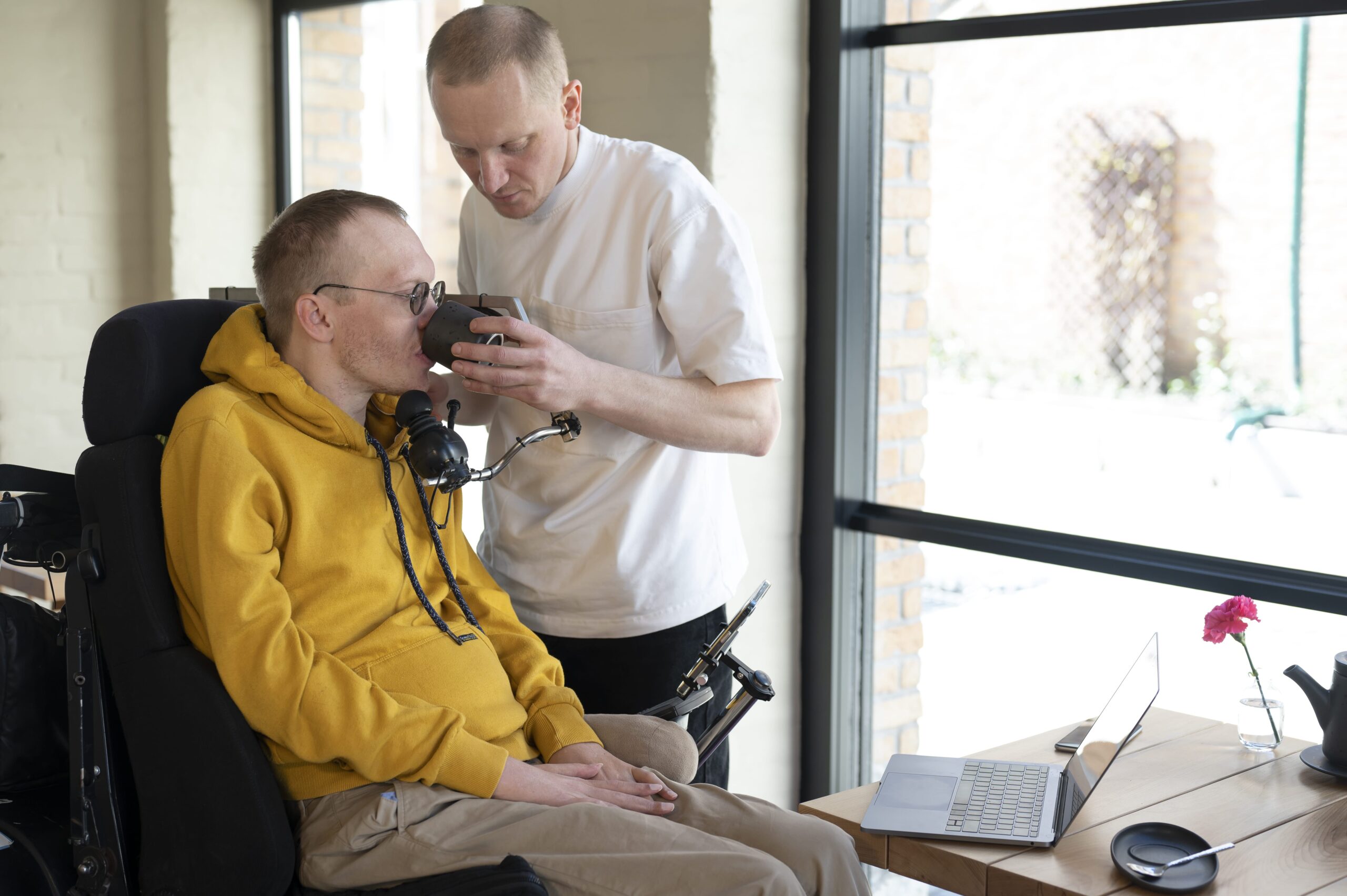As the day winds down, many people living with dementia experience increased confusion, anxiety, and restlessness. This phenomenon, known as sundowning, can be distressing for both the individual and their caregiver. If you’ve noticed your loved one becoming more agitated in the late afternoon or evening, you’re not alone.
Sundowning is a common and challenging symptom of dementia that affects thousands of Australians every year. But take heart—while it may feel overwhelming, there are compassionate, practical ways to ease these late-day struggles.
With the proper knowledge and gentle care, it is possible to bring comfort, calm, and connection back into those evening hours. Aged care providers across Australia use proven strategies every day to help individuals with dementia—and their families—navigate sundowning with greater ease and peace of mind.
In this article, we’ll explore:
What sundowning is and why it happens
- Who may experience sundowning?
Common symptoms to watch for
Practical strategies to help reduce sundowning episodes
When to Seek Professional Help
Let’s break it down.
What Is Sundowning in Dementia?
Sundowning is a symptom of dementia that causes increased confusion, agitation, and behavioural changes in the late afternoon and early evening. Also known as late-day confusion, sundowners syndrome or sundown syndrome, it’s not a specific disease but rather a group of symptoms that tend to appear as daylight fades.
Why does it happen?
Researchers believe sundowning is linked to disruptions in the body’s circadian rhythm—the internal clock that regulates sleep-wake cycles. Dementia affects the brain’s ability to maintain this rhythm, leading to confusion and agitation as the day progresses.
Other possible triggers include:
Fatigue – As the day goes on, exhaustion can make it harder to cope with stress.
Low lighting – Shadows and dim environments can make surroundings appear unfamiliar and frightening.
Hunger or dehydration – Skipping meals or not drinking enough water can contribute to irritability.
Overstimulation – Too much noise or activity during the day can lead to sensory overload.
Sundowning is a common dementia behaviour in the middle to late stages of dementia, but the intensity of symptoms can vary.
Contact us today for Expert Dementia Care Support. Get Answers to Your Questions About Managing Sundowning and Personalised Advice for Your Loved One’s Needs in Australia.
Who May Experience Sundowning?
Sundowning is most commonly associated with Alzheimer’s disease and other forms of dementia, but it is not limited to these conditions. It can affect:
People with Alzheimer’s disease – Sundowning is particularly prevalent in the middle and later stages of Alzheimer’s.
Individuals with other types of dementia – Those with Lewy body dementia, vascular dementia, and frontotemporal dementia may also experience sundowning.
Elderly individuals with cognitive decline – Even seniors without a formal dementia diagnosis may show sundowning-like symptoms due to age-related changes in the brain.
Hospitalised or institutionalised older adults – Being in an unfamiliar environment, such as a hospital or aged care facility, can increase confusion and lead to sundowning symptoms.
People with sleep disorders or depression – While not a direct cause, underlying mental health conditions can contribute to evening confusion and agitation in older adults.
What are the Symptoms of Sundowning in Dementia?
Sundowning can happen in different ways but is most commonly characterised by increased confusion, agitation, and emotional distress in the late afternoon and evening. Some of the most common symptoms and signs of sundowning syndrome observed in individuals with dementia include the following:
Difficulty Sleeping
Increased Confusion and Disorientation
As daylight fades, a person with dementia may struggle to recognise familiar people, places, or even their own home. They might forget what time of day it is, ask repetitive questions, or seem lost in a once-familiar environment. This late-day confusion can intensify when shadows grow longer, making surroundings appear unfamiliar and frightening.
Agitation and Restlessness
Anxiety and Fear
Hallucinations and Delusions
Book a Consultation with Our Dementia Care Experts to Discuss Effective Ways to Manage Sundowning Symptoms. We Offer Personalised Strategies for Families in Australia Struggling With These Challenges.
Wandering and Shadowing
Many individuals with dementia wander during sundowning episodes. They may leave their home or room, searching for something or someone, or staring at someone even when there is no apparent reason. Some may also engage in shadowing, meaning they follow their caregiver closely, afraid to be left alone. This behaviour often stems from insecurity and confusion.
Believing They Are in the Wrong Place
Trouble Separating Reality from Dreams
How to Manage Sundowning in Dementia?
Sundowning can be exhausting—not just for the person experiencing it but also for their caregivers. The good news is that with the right approach, you can prevent sundowning from disrupting the evenings and improve your loved one’s sense of security and comfort. Small changes in daily routines, environment, and activities can make a big difference.
Here are some practical ways to manage and avoid sundowning in dementia:
1. Stick to a Consistent Evening Routine
A familiar routine provides stability and reassurance. Simple activities like closing the curtains, preparing dinner together, or listening to calming music can signal that it’s time to wind down for the night.
2. Maximise Natural Light Exposure
Sunlight helps regulate the body’s internal clock. To promote better sleep patterns, encourage daytime activities like a short walk, light gardening, or sitting outside.
Get Started Now on Your Journey to Better Dementia Care. We Offer Professional Help to Families in Australia, Helping You Manage Sundowning and Other Challenging Symptoms with Personalised Support.
3. Limit Daytime Naps and Adjust Evening Lighting
Too much daytime sleep can lead to restlessness at night. If naps are necessary, keep them brief. Before sunset, turn on indoor lights and close curtains to reduce confusion caused by shadows and reflections.
4. Avoid Stimulants and Heavy Meals Before Bed
Caffeine and alcohol can disrupt sleep and increase agitation. Instead, offer caffeine-free drinks or herbal teas in the evening. A light meal is easier to digest and can help prevent discomfort.
5. Encourage Soothing Activities
Help your loved one relax with activities like watching a favorite TV show, listening to soft music, flipping through a photo album, or stroking a pet. Avoid loud noises or overstimulating programs, as these can trigger anxiety.
6. Use Distraction Techniques When Needed
If distress begins to set in, gently redirect their attention. Try changing rooms, offering a warm drink, playing soft music, or going for a short walk. If reflections in mirrors or windows confuse you, cover them with a curtain to prevent distress.
When to Seek Professional Help?
While sundowning can often be managed at home, there are times when medical intervention may be necessary. Talk to a doctor if:
The symptoms become severe or unmanageable despite trying different strategies.
Your loved one is at risk of harming themselves or others.
Sleep disturbances are leading to chronic exhaustion for both the person with dementia and their caregiver.
A doctor may prescribe:
- Reviewing medications that could be affecting sleep.
- Prescribe melatonin or other sleep aids if necessary.
- Checking for other health issues like urinary tract infections or pain that may be making sundowning worse.
Final Thoughts: Supporting Your Loved One Through Sundowning
Sundowning isn’t just restlessness—it’s a reaction to confusion and discomfort as the day comes to an end. Understanding signs and symptoms of sundowning, such as increased confusion, anxiety, agitation, and sleep disturbances, is the first step toward managing it effectively. Simple tips for coping are changes like sticking to a routine, maximising daylight exposure, limiting naps, adjusting lighting, and encouraging calming activities, which can help prevent sundowning and create a sense of security.
While every person with dementia experiences sundowning differently, patience and consistency can make a significant difference. By making minor adjustments and offering reassurance, you can ease their distress and create a more peaceful environment in the evenings.
If you need further guidance on managing dementia-related behaviors or are looking for professional support, don’t hesitate to reach out to a dementia care specialist or aged care provider. You’re not alone—help and resources are available to support both you and your loved one.



